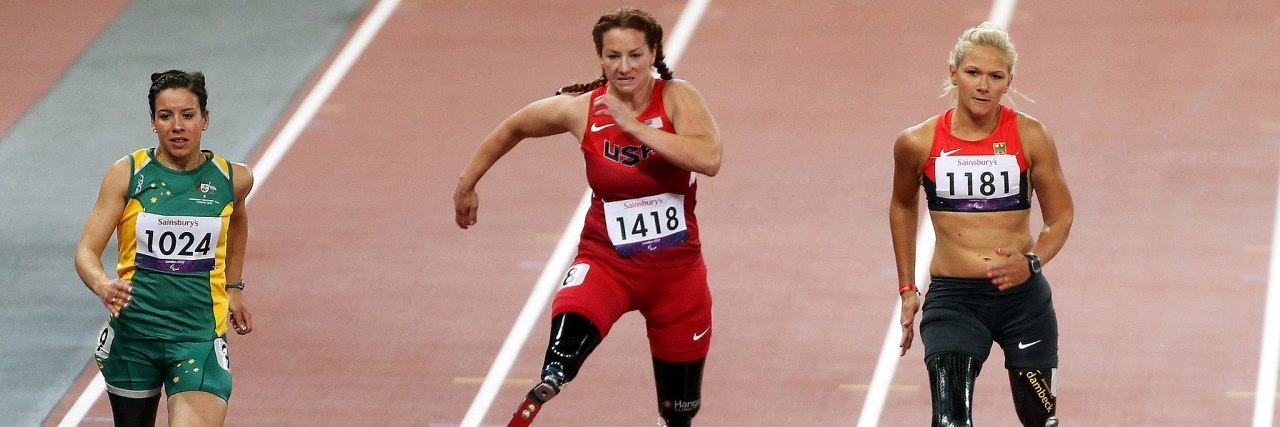As buzz about this year’s Paralympics games ramps up, so do accusations of talented athletes cheating their way into medaling at previous competitions. But these cheating accusations are different from — and more dangerous than — the primarily drug-based cheating rumors that swirl through the Olympic world. Some Paralympics are routinely accused of faking their disabilities altogether in order to access “easier” competitions, which can have detrimental consequences for the entire disability community.
Paralympians are classified based on condition type and severity prior to entering Para competitions, but instances of cheating have made athletes who win fairly take issue with the classification system. Classification requires that athletes meet the minimum impairment criteria, which is based on how eligible physical impairments affect performance in various types of athletic competitions. After undergoing physical and mental evaluation, eligible athletes are assigned to a Sports Classification alongside fellow athletes whose disabilities cause similar activity limitations. This system is designed to maintain equity in Para sports, but it also opens the door to cheating and “disability fraud” accusations.
Numerous athletes who regularly rack up medals and records in their events have been accused of cheating in order to gain more favorable classifications — and some have been accused of faking disabilities altogether. Multiple sources report that some Paralympic athletes, particularly those with neurological conditions, do cheat in ways their Olympic counterparts can’t — taping their limbs to increase energy expenditure, rolling in snow, or taking cold showers immediately before classification to increase muscle spasticity in hopes of landing a classification with less able-bodied athletes and a higher chance of winning. But while cheating should never be condoned at the Games, unsubstantiated cheating accusations often lead Paralympic spectators to overstep their bounds, demanding to see competitors’ medical records and making accusations of their own — that certain Paralympians are faking their conditions entirely.
In 2000, four years after athletes with intellectual disabilities were first allowed to compete in the Paralympics, the Spanish basketball team infamously included several athletes without intellectual disability — but similar substantiated accounts have been few and far between since. While the Paralympic basketball incident did make the Paralympic governing bodies aware that the classification system is flawed in some respects, they defended their classification system. Unfortunately, though, the scandal also may have led to consequences that harm the invisible disability community. Spectators began to overanalyze potential signs that Paralympic competitors may not be disabled at all. Since then, athletes with less visible disabilities have been denied necessary accommodations at the Games on the basis of not appearing “disabled enough” for assistance, and many others, like Australian Paralympic swimmer Lakeisha Patterson, have repeatedly been accused of pretending to be disabled.
The Paralympics is supposed to be a safe space for disabled athletes to highlight their talent on a global level, but in many cases, it’s turned into a disability fraud “Whodunit,” full of pointed fingers, cyberbullying and public accusations. Five-time Paralympic swimmer Jessica Long has openly discussed the ramifications of classification cheating in the Paralympic pool, but it seems that fewer are willing to hear from less visibly disabled athletes, like Patterson and fellow Australian Paralympic swimmer Maddison Elliott, both of whom have mild cerebral palsy and have been accused of faking their disabilities. Both swimmers have been relentlessly cyberbullied, even after they were moved to “less impaired” classifications, and demands to see their medical records still abound. Cheating in the Games is unacceptable, but accusing athletes of faking their conditions and insisting on access to their private medical information is just as egregious and can have lasting psychological consequences for Paralympians.
Just because athletes with mild or invisible disabilities excel in their sports doesn’t mean they should be accused of faking their symptoms for the sake of some shiny Paralympic hardware. Invisible disabilities can affect those who live with them twofold — forcing them to manage their symptoms and simultaneously prove that they are, in fact, disabled. Constantly facing others’ doubt about the validity of certain symptoms can be an exhausting prospect — especially if you’re a Paralympian whose detractors quite literally scrutinize your every move.
The Paralympic classification system is imperfect and can allow athletes to play up their symptoms for access to easier competitions, but accusing Paralympians of faking their disabilities takes cheating accusations too far. People from all walks of life who live with mild or invisible disabilities often face doubt about the daily realities of their conditions, but Paralympians are constantly forced to manage their symptoms and cope with those doubts while simultaneously living under intense scrutiny. No matter how their conditions affect them, Paralympians don’t need to prove the existence of their disabilities to the rest of the world. On the contrary, we need to understand that invisible disabilities do greatly impact Paralympic athletes and treat Paralympians with the respect and empathy they deserve.

